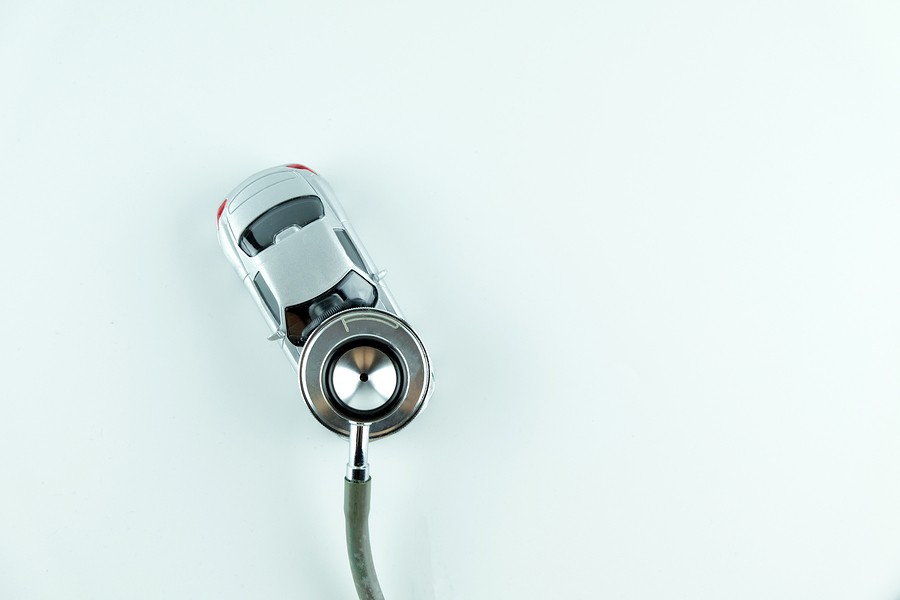If you're searching for “how to know if the engine is seized,” below are the different checks that you have to perform to confirm:
- Visual inspections
- Electrical checks
- Physical checks
- Professional Diagnosis
A seized engine is one of the very common major engine problems you might face as a car owner. This problem occurs because one of your engine's internal components gets stuck and prevents the engine from performing properly.
Ignoring a seized engine is never a good idea because it can lead to significant engine problems and costly repairs. This might make it very hard for your mechanic to fix and even replace the faulty component because you most likely need to replace the entire engine.
Understanding how to confirm whether your vehicle engine is seized or about the disease is very important for you as a car owner to avoid costly repairs as much as possible.
This article provides a comprehensive guide to help you learn and answer, “How to know if the engine is seized?” It highlights different types of inspections and checks that you could do to confirm the problem.
How to know if the engine is seized?
Determining whether your engine is seized does not need to wait until you meet with your mechanic. There are some simple inspections that you could do yourself and some more advanced ones that you could try if you have the right skills and tools.
The following list provides you with all the different types of inspections you could do to check whether your engine is seized so you can determine whether you need to take your vehicle to the mechanic and get it fixed as soon as possible or not.
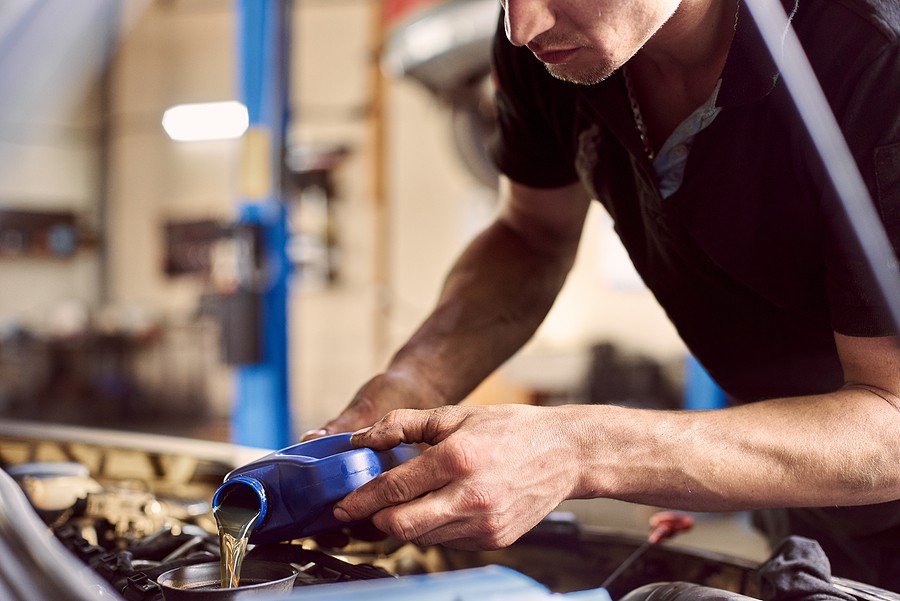
1- Visual inspections
The first and easiest type of inspection that you could look for is performing a visual inspection. This does not require any tools or any previous skills. All you need to do is to look for the following symptoms:
Weird noises
If you notice that your vehicle is making weird noises, including knocking, popping, rattling, or sometimes whistling, coming from the engine compartment, it could indicate A seized engine.
Fluid leaks
In addition to the weird noises, you might notice that the vehicle has some fluid leaks indicating that the engine cannot run this fluid through the right paths and there is potentially some damage inside the seals.
Strange orders
All these leaks are associated with weird odors, like a burning smell from fluid sipping on hot components or some sweet smell indicating the coolant leaking inside the car.
Troubles with the crankshaft
Finally, you can perform a simple visual inspection by monitoring your response to the crankshaft. For example, if you tried manually to turn the crankshaft, you won't be able to because something is stuck inside the vehicle engine.
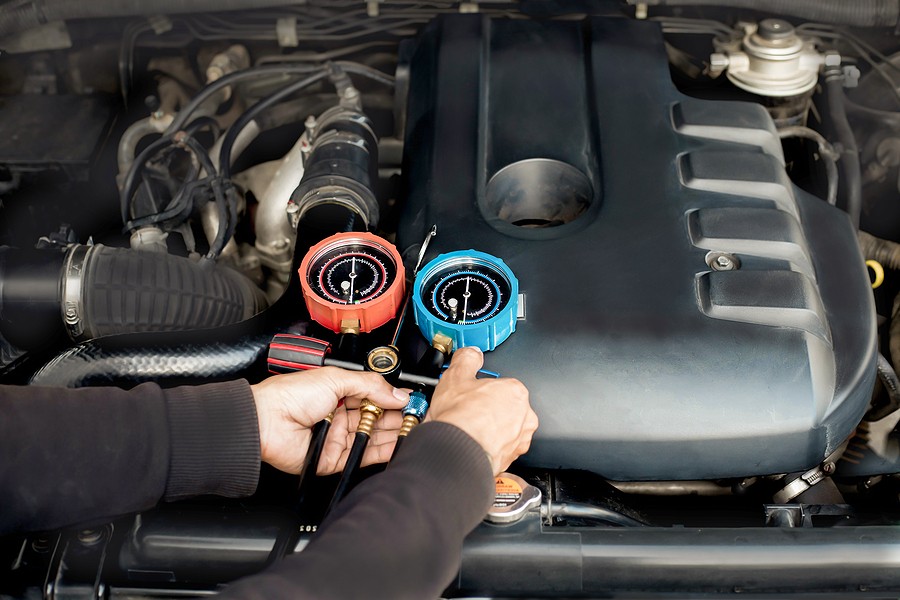
2- Electrical checks
Once you finish the visual inspections and confirm nothing is clear, you can move forward with more advanced checks, like the electrical checks. These might not also need any tools, but they need you to pay attention to the electrical accessories and components.
Flickering accessories
When turning on the ignition, see what happens to the accessories. For example, you might notice that the stories are flickering, indicating that the engine is about to turn but cannot continue the turn.
Strange ignition sound
You might also notice some weird ignition sound whenever you turn the ignition key. This indicates that the engine is trying to start, but because of the seized components, it can't do that.
Starter motor wiring
When turning the ignition in the key and noticing that the starter motor is making some strong high-pitched wiring sound, it might indicate something size inside the engine.
Troubles with the dashboard lights
Finally, look at the dashboard lights and see if there's anything abnormal. Of course, there might be a problem with your battery causing these issues, but it could be related to the engine.
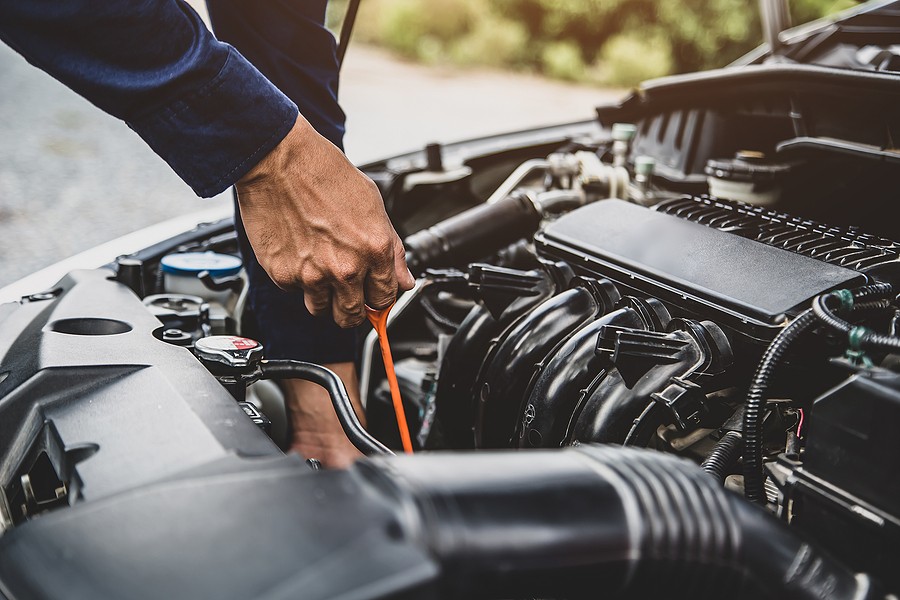
3- Physical checks
When done with looking at the electrical components coming, then look at the physical checks; you can, in this step, look at any resistance from your vehicle and check for the oil and cooling systems.
Irregularities in the cooling system
Start by monitoring the cooling system and seeing if there are any potential troubles with the temperature spikes on the dashboard. If you notice that the cooling system is not operating properly, it could be an internal problem, but it could also be related to the engine.
Oil inspections
The vehicle engine can easily get seized when it does not receive the right Lubrication. In that case, look at the oil level and see if it's producing the required Lubrication needed by the engine.
Resistance check
Another thing you could do is try to pull or turn the pulleys around the engine. We're using a socket wrench. If you feel that it's stuck and they're not responding to your manual turns, it might indicate that something inside the engine is seized.
Stock pulleys and belts
Finally, the stock pulleys and belts can be visible to you. Look at the engine as you're trying to turn the different components, and see if there's anything stuck within those components.
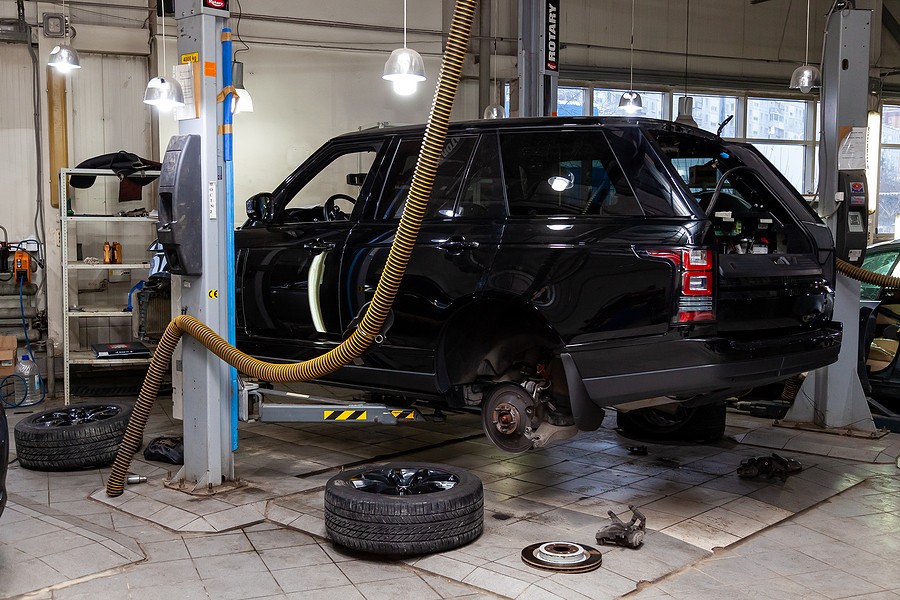
4- Professional Diagnosis
At some point, you might feel that you're unable to detect whether the engine is seized, but you still continuously notice the mentioned symptoms; in that case, you need to talk to your mechanic and have him perform a thorough inspection to confirm the problem.
Your mechanic should have the right tools to help him perform a detailed inspection. Some of these tools might even require software inspections and confirm that the engine doesn't need an update or that there are warning lights or codes that he can translate to pinpoint the problem.
How much does it cost to fix a seized engine?
Unfortunately, it can't be easy to tell how much to expect to fix your seized engine because it depends heavily on the vehicle type and location where you get the job done. However, you might expect somewhere between $3000 and $5000.
As you might notice, repair costs are not cheap, and they're not what are those repairs that you could decide on and move forward immediately because they need some research and confirmation from you that your vehicle is worth the repair.

Is it worth repairing A seized engine?
It all depends. If your seized engine does not require much money on repair costs, it's worth the investment. However, it might not be worth the investment if it needs a lot of money and is beyond your budget. It would be best if you considered purchasing a different vehicle.
One might wonder what is considered a lot of money so we can decide not to pursue repair costs. The short answer to that question is 75%. Automotive experts thought that once your repair costs approach 75% or more of your vehicle's value, you should give up and never proceed with fixing this vehicle. This is because the repair costs will not be worth it and will not add much to the vehicle.

How to know if the engine is seized? Final Thoughts
A seized engine is one of the most common situations you might encounter when you own your vehicle. It is a very severe problem and can indicate thousands of dollars for repair if you don't detect it as early as possible.
This article provided a comprehensive guide to help you answer the question, “How to know if an engine is seized?” It provided many instructions and checks that you could try yourself without waiting for your mechanic. Some of these include visual, electrical, physical, and other types of inspections.
Regardless of whether you can confirm that the problem is related to an engine seizing issue, you have to talk to your mechanic as soon as possible and have him resolve the issue because it could be a minor problem that could lead to significant repairs.
Before you invest anything in fixing your vehicle, you must confirm that it's worth the repairs. If it's any point you need to sell your vehicle instead of spending your time and effort trying to fix it, you can always consult Cash Cars Buyer at 773-791-4363.
If you're interested in similar posts, we highly encourage you to visit our blog by clicking here!

